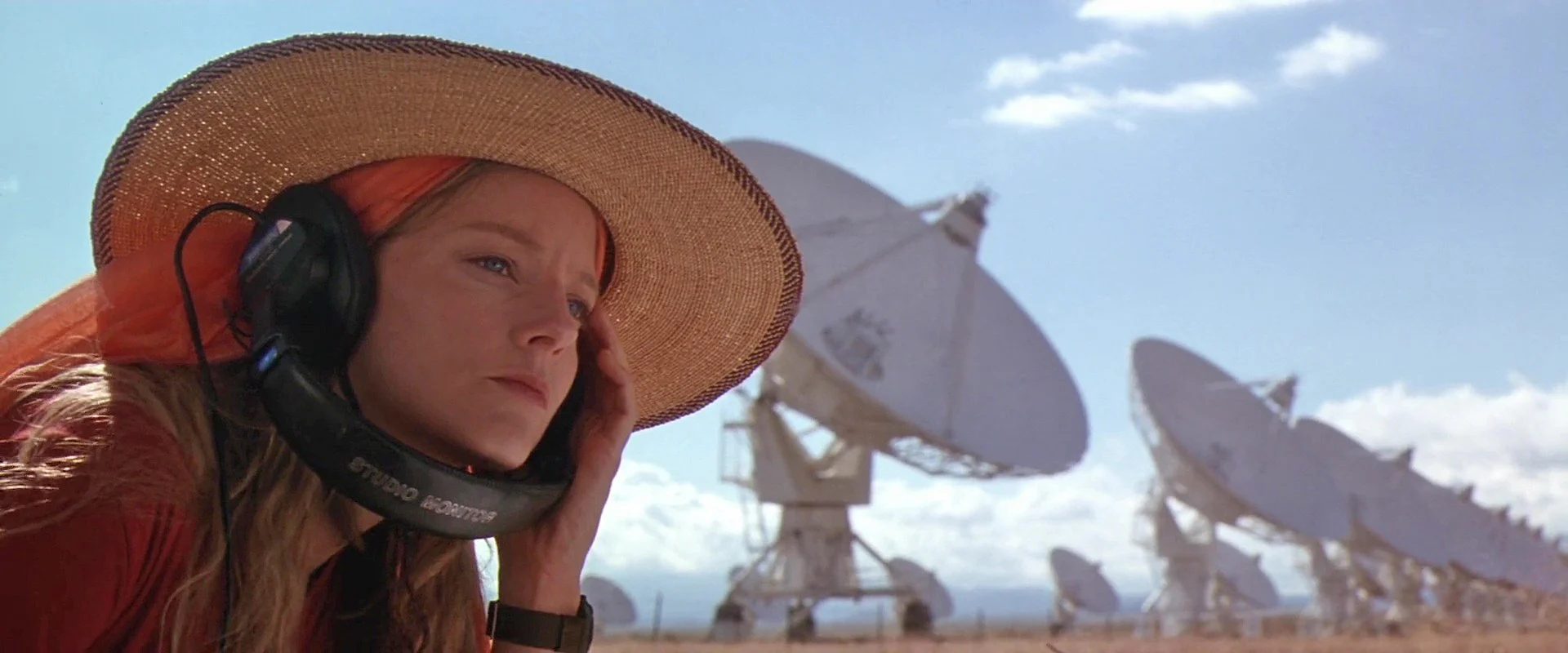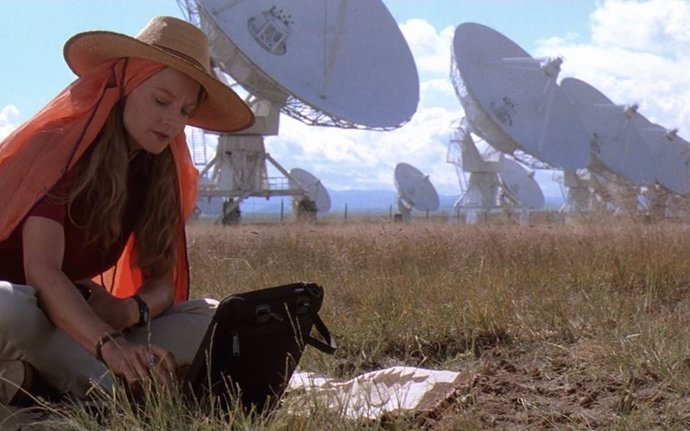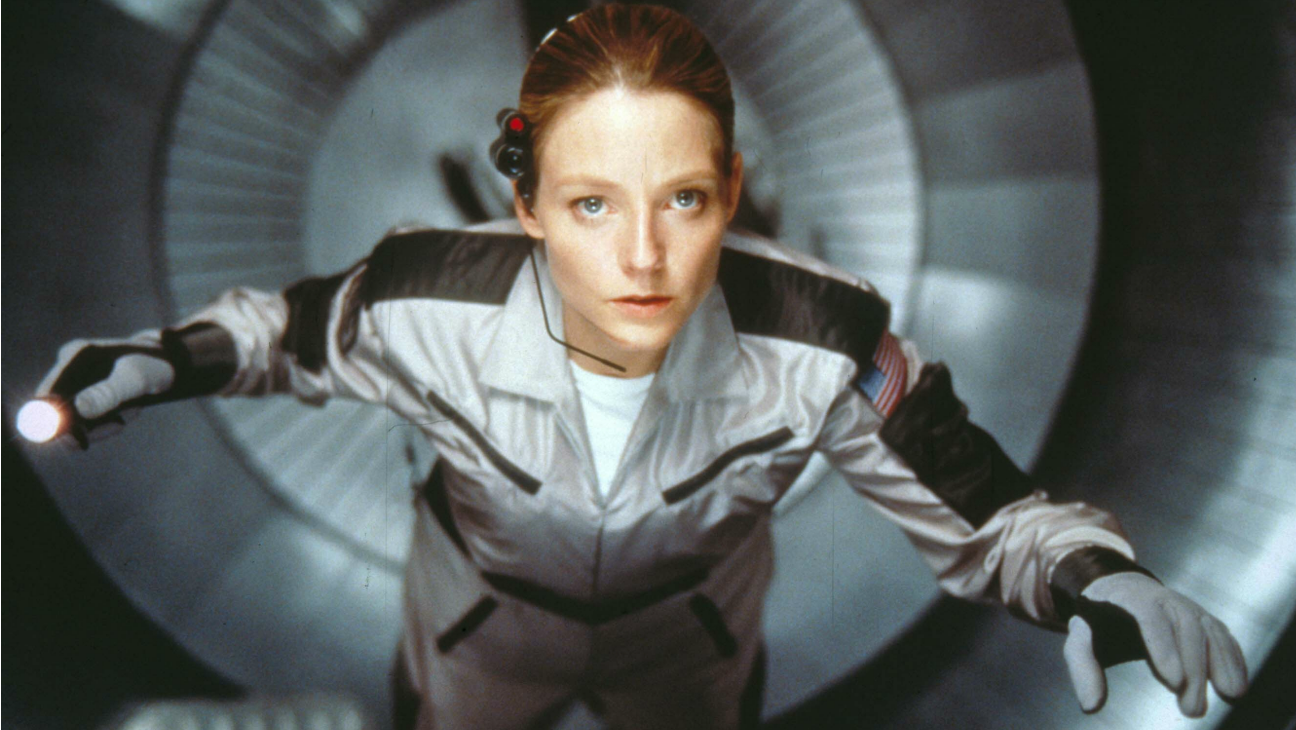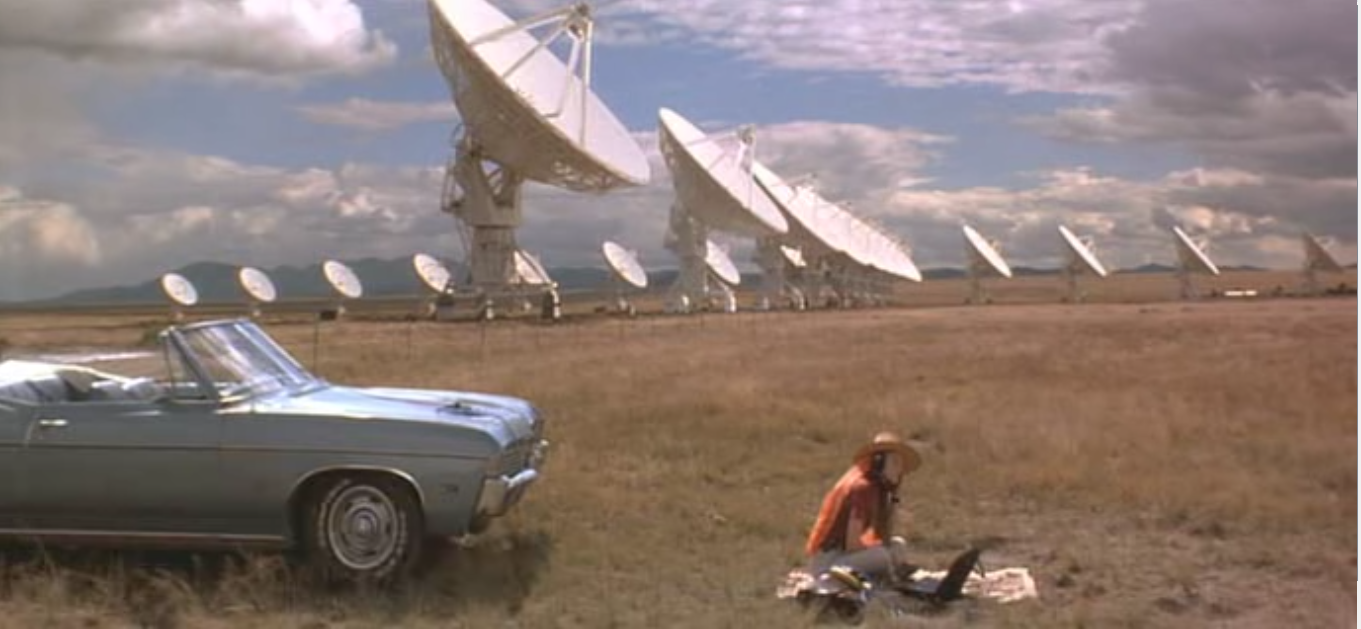Contact (1997): A Thought-Provoking Journey Into the Unknown

Contact (1997): A Thought-Provoking Journey Into the Unknown
Directed by Robert Zemeckis, Contact (1997) is a sci-fi drama based on Carl Sagan’s novel of the same name. The film stars Jodie Foster as Dr. Ellie Arroway, a dedicated scientist who, after years of searching for extraterrestrial life, makes the groundbreaking discovery of a message from an alien civilization. While Contact is often classified as a science fiction film, it is equally a philosophical exploration of humanity’s place in the universe, the intersection of science and faith, and the nature of communication.
Plot Overview: A Message from the Stars
The story begins with Ellie Arroway, a brilliant but often disillusioned astrophysicist, who has spent much of her life searching for signals from intelligent alien life. After years of rejection and skepticism, she discovers a message transmitted from a distant star system. The signal, which turns out to be a blueprint for constructing a machine that could potentially allow humans to make contact with the aliens, becomes the focus of global attention.
As the world grapples with the implications of this discovery, Ellie and her team work tirelessly to build the machine. Alongside her professional journey, Ellie faces personal struggles, including her strained relationship with religion and her unresolved grief over the death of her father. The film delves into the political, religious, and philosophical ramifications of first contact, culminating in Ellie’s journey to meet the extraterrestrials in a visually and emotionally striking climax.

Themes: Science, Faith, and the Search for Meaning
At its core, Contact is a film about the tension between science and faith. Dr. Arroway represents the scientific mindset: empirical, logical, and grounded in evidence. She is a character who seeks truth through observation and data, rejecting faith-based explanations in favor of objective facts. In contrast, Palmer Joss (played by Matthew McConaughey), a spiritual advisor and Ellie’s romantic interest, represents the religious viewpoint, one that finds meaning in faith, belief, and the unknown. Their dynamic encapsulates the larger debate between scientific rationalism and spiritual faith, and the film never fully resolves this tension, instead presenting it as an ongoing human struggle.
The discovery of the alien message serves as a catalyst for these philosophical debates. Ellie’s unwavering commitment to scientific inquiry leads her to challenge long-held beliefs and wrestle with the existential questions raised by the possibility of extraterrestrial life. For Ellie, the message from the stars could provide the ultimate evidence of something greater than humanity—a universe filled with intelligent beings, waiting to be understood. Yet, the film leaves open the question of what the discovery means on a deeper, spiritual level.
One of the most poignant themes of Contact is the idea of human loneliness and the search for connection. Ellie’s journey is driven not only by scientific curiosity but also by a deep, existential need to find her place in the vast universe. She longs for a sense of belonging, for proof that humanity is not alone. This need for connection is mirrored in the film’s portrayal of the human race’s collective desire for purpose and understanding, whether through science, religion, or both.
Another important theme is the idea of skepticism and belief. The film is at times critical of the way society reacts to extraordinary claims. Ellie’s work, despite being groundbreaking, is met with skepticism from many in the scientific community and ridicule from religious leaders who are uncomfortable with the implications of alien contact. The film suggests that humanity’s fear of the unknown can lead to rejection and denial, whether in science or faith, and that true progress requires openness to the possibilities beyond our current understanding.
Characters: Human Complexity Amidst Cosmic Discovery
Jodie Foster delivers a captivating performance as Ellie Arroway, perfectly capturing the character’s intellect, determination, and emotional vulnerability. Ellie is a scientist with a singular focus on the search for extraterrestrial life, but her personal journey is just as important as her professional one. Her relationship with her father (played by David Morse), who instilled in her the love of science, is central to her motivations and her desire to prove herself in a world that often dismisses her work.
Matthew McConaughey, as Palmer Joss, serves as Ellie’s spiritual counterpoint. His character is a charismatic and philosophical man of faith, who questions the limitations of human understanding and challenges Ellie’s view of the world. Their relationship is one of mutual respect, but also one of tension, as their differing worldviews force them to confront their own beliefs. While the romantic subplot between Ellie and Palmer is secondary to the larger themes of the film, their contrasting perspectives provide an emotional and intellectual balance that drives the narrative.
Supporting characters, including the pragmatic scientist Dr. David Drumlin (Tom Skerritt) and government official Michael Kitz (James Woods), provide additional layers of tension and conflict. Their involvement in the project to build the alien contact machine highlights the political and bureaucratic challenges of such a groundbreaking discovery. These characters serve to ground the film in the realities of how humanity would likely react to such an event, with some motivated by power, others by fear, and still others by the pursuit of knowledge.
Visuals and Special Effects: Awe-Inspiring and Thoughtful
One of the film’s standout elements is its visual effects, which are used sparingly but effectively to convey the sense of wonder and scale associated with the discovery of alien life. The depiction of the alien machine, the journey Ellie takes within it, and her ultimate encounter with the extraterrestrial intelligence are all beautifully realized. The visual effects are awe-inspiring without being overwhelming, serving the narrative rather than overshadowing it. The film’s final sequence, in which Ellie encounters an alien entity in the form of her deceased father, is a haunting and emotionally charged moment that ties together the film’s themes of connection, faith, and the search for meaning.
The film’s cinematography also plays a crucial role in conveying its thematic weight. The expansive shots of the universe and the use of light and shadow create a sense of scale that underscores humanity’s insignificance in the grand scheme of things, while also highlighting the potential for discovery and wonder. The movie’s tone shifts between moments of cosmic awe and personal intimacy, and the cinematography helps to balance these contrasting emotional beats.
Music and Soundtrack: Complementing the Journey
The film’s score, composed by Alan Silvestri, is a standout aspect of Contact. The music beautifully complements the film’s themes of discovery, longing, and wonder. Silvestri’s compositions evoke both the vastness of space and the emotional depth of Ellie’s personal journey. The music is particularly effective during the scenes in which Ellie travels through the alien machine, heightening the sense of mystery and awe. The score never overpowers the narrative but instead enhances the emotional resonance of key moments, allowing the film’s themes to shine through.
Legacy: A Film That Asks Big Questions
Contact is a rare science fiction film that doesn’t rely on action sequences or flashy special effects to drive its narrative. Instead, it focuses on asking big, existential questions about humanity’s place in the universe, the nature of belief, and the search for meaning. The film doesn’t provide easy answers but instead challenges its audience to think critically about the intersections of science, faith, and human understanding.
While it may not have been a major box office success upon release, Contact has since become a cult favorite for those who appreciate thought-provoking science fiction that goes beyond the typical genre tropes. It’s a film that lingers long after the credits roll, prompting viewers to reflect on their own beliefs and the mysteries of the universe.
Conclusion: A Thoughtful Exploration of Humanity’s Longing
Contact is a film that transcends its genre. It is not just a story about alien life but a meditation on human existence, the search for knowledge, and the quest for connection—both with each other and with the cosmos. Through the character of Ellie Arroway, the film explores the tension between science and faith, while offering a hopeful and inspiring vision of what humanity could achieve when it looks beyond itself. Despite its slower pacing and philosophical nature, Contact is a film that continues to resonate with audiences, making it one of the most intellectually stimulating and emotionally rich science fiction films of the 1990s.










